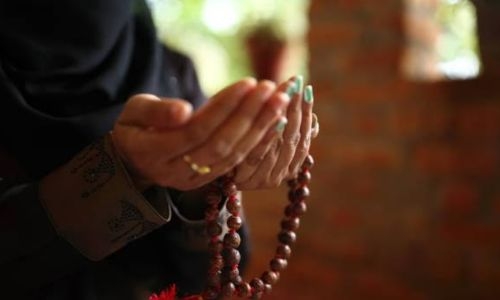Cassation Court reverses ruling denying her custody of children based on religious conversion
TDT | Manama
The Daily Tribune - www.newsofbahrain.com
Email: editor@newsofbahrain.com
The Cassation Court has overturned a previous ruling that stripped a foreign mother of custody of her children based on her conversion to Islam. The Cassation Court deemed the previous ruling flawed, finding that it unfairly questioned the mother’s religious conversion and its motives.
The case has been sent back to the High Appeals Court for a fresh ruling.
The woman had separated from her husband through mutual consent and had two children with him. She was surprised when the father filed a lawsuit seeking to revoke her custody, claiming she was unfit due to her adherence to another religion, and that it was in the children’s best interest to be in his custody.
In response, the mother filed a lawsuit asserting her right to custody, arguing that the children were of an age suitable for maternal care and that she met the necessary conditions for custody. She also requested that the father provide their identification documents.
However, the court ruled in favour of the father, granting him custody of the children and dismissing the mother’s claim.
Evidence
Dissatisfied with the ruling, the mother appealed to the High Appeals Court, maintaining her claim of having converted to Islam and providing evidence to support her assertion.
Nevertheless, the High Appeals Court upheld the initial ruling. Faced with this outcome, the mother sought recourse in the Court of Cassation.
Her attorney argued that the children hold their mother’s nationality and are still of an age suitable for maternal custody.
Best interest
He emphasised that it would be in their best interest to be with their mother, especially since she had converted to Islam and provided proof of her conversion.
The initial ruling was upheld, stating that the mother lost custody due to her adherence to a different religion than that of the children.
The court suggested that her conversion to Islam was motivated by the desire to gain custody, a matter that the judge should not question, as it pertains to personal beliefs known only to God.
Lack of suitability
The Court of Cassation confirmed that the contested ruling upheld the appellate decision to revoke the mother’s custody based on her perceived lack of suitability due to her previous religious beliefs. However, the court noted that the claims regarding her conversion to Islam should not have been evaluated for their legitimacy or motives.
The Court of Cassation accepted the appeal and, in the substantive ruling, overturned the contested decision and referred the controversial case back to the original court for reconsideration
Related Posts

